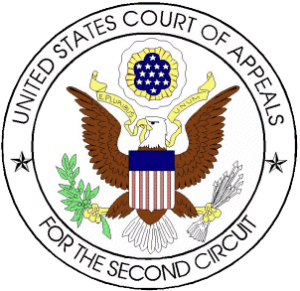United States v Johnson
15-3498-cr
Court of Appeals for the Second Circuit
Decided on March 10, 2017
Issue: Whether a guilty plea is entered voluntarily, knowingly, and intelligently where a mandatory life sentence would be imposed on defendant, but where the prosecutor and judge did not ensure defendant understood there were no other sentencing possibilities outside the scope of the life sentence.
Holding: The United States Court of Appeals for the Second Circuit held that the defendant did not voluntarily, knowingly, and intelligently enter his guilty plea because the inevitable mandatory life sentencing was not properly explained to the?defendant by the prosecutor and judge so that the defendant clearly understood the singular consequence of his guilty plea.
Facts: Johnson entered a guilty plea to drug conspiracy under 21 USC 841(a)(1) and 846 and to being a felon in possession of a firearm under 18 USC 922(g)(1). Since defendant was a career offender, the drug-trafficking conviction resulted in a mandatory life sentence with no other possible sentence.
At the plea hearing, although the prosecutor mentioned a mandatory minimum life sentence would override other sentencing possibilities, the judge brought up “potential” sentences and the prosecutor spoke of multiple minimum and maximum sentences, supervised release, and warned the?defendant of the forfeiture of his rights. The judge and prosecutor also discussed judicial discretion and Sentencing Guidelines ranges. The defendant pleaded guilty.
Between the time of his guilty plea and his sentencing, Johnson sought to withdraw his guilty plea, urging the trial court that he did not understand that his plea would necessarily entail a mandatory life sentence. The court denied Johnson’s motion.
 Analysis: Stressing the importance of ensuring a defendant’s guilty plea is entered voluntarily, knowingly, and intelligently, the Court of Appeals for the Second Circuit looked to Rule 11 of the Federal Rules of Criminal Procedure. Rule 11 provides that “the court must address the defendant personally in open court” and “must inform the defendant of, and determine that defendant understands” many aspects of the plea, including “any maximum possible penalty” and “any mandatory penalty.” Fed. R. Crim. P. 11(b)(1)(H)-(I).
Analysis: Stressing the importance of ensuring a defendant’s guilty plea is entered voluntarily, knowingly, and intelligently, the Court of Appeals for the Second Circuit looked to Rule 11 of the Federal Rules of Criminal Procedure. Rule 11 provides that “the court must address the defendant personally in open court” and “must inform the defendant of, and determine that defendant understands” many aspects of the plea, including “any maximum possible penalty” and “any mandatory penalty.” Fed. R. Crim. P. 11(b)(1)(H)-(I).
Although Johnson’s sentencing judge did not personally inform him of any sentence at the plea hearing, the Court held that it was sufficient that “the sentencing court directed the prosecutor to do so.” However, an issue did arise when the court failed to confirm Johnson understood the sentence that would result from his guilty plea. The court did not address the complexities of the prosecutor’s explanation to the defendant and, as a result, Johnson remained confused and uninformed. The Court sympathized with Johnson’s confusion and noted that “Johnson was not trained by the law” and that “it is easy to see how [he might be confused].”
The question of whether Johnson’s guilty plea was entered voluntarily, knowingly, and intelligently hinged on the fact that, at the time of the plea hearing, the only possible consequence of his plea was life imprisonment. The life sentence “was not merely a potential sentence, or one possible maximum sentence” but the one and only possible sentence if he pleaded guilty. More obvious, as the Court noted, remained the question of why Johnson would voluntarily choose to “spend the rest of his life in prison” instead of going to trial.
The prosecutor’s use of the phrase “possible maximum” was by itself confusing since there were no other sentencing possibilities. Further, the prosecutions discussion of barring Johnson from obtaining future licenses, holding public offices, etc. “could only bespeak the possibility of a sentence short life in prison” and had little to no relevance in the context of mandatory life imprisonment.
In regard to the judge at the plea hearing, the Court stated that the judge “compounded the confusion” and “discussed discretion and Guidelines” while simultaneously failing to ensure Johnson understood the mandatory life sentence. The Court held that when the judge questioned whether Johnson understood everything that was said, his confirmation could only indicate that he understood that judges are generally permitted to have discretion in sentencing but “not that in?his sentencing the judge would have none whatsoever.”
Referring back to the prosecutor’s “long and technical explanation,” the Court held that the prosecutor’s statement that the mandatory sentence “trumps” other possible sentences was “at cross-purposes to the earlier discussion.” Admitting that it isn’t unreasonable for courts to become naturally accustomed to discussing sentencing calculations and explaining the Sentence Guidelines at plea hearings, the Court still held that “the defendant’s understanding remains the paramount consideration.” Again, the extensive discussion of “possible” sentences undermined the defendant’s plea and rendered it invalid because the defendant did not have “sufficient awareness of the…likely consequences.” Brady, 397 U.S. at 748.
At the tail of its decision, the Second Circuit addressed the obvious: Why would Johnson choose to take a plea that would inevitably result in life in prison instead of taking a chance at trial? As the Court noted, accepting a plea that entailed a certain life sentence would be irrational. Additionally, Johnson had no plea agreement from which to benefit. It is clear that Johnson did not fully comprehend the inevitable life sentence of his guilty plea. That conclusion was apparent in his letter seeking to withdraw the plea, in which Johnson stated that he had “everything to gain going to trial versus just accepting a life sentence.”


